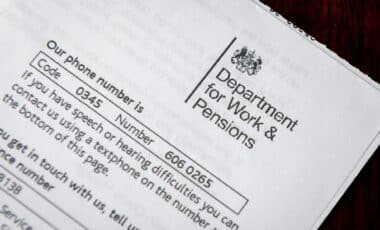The triple lock pension policy, introduced over a decade ago, has been a vital mechanism in safeguarding the incomes of UK retirees. However, its sustainability has come under scrutiny amid mounting economic pressures.
While many view it as a cornerstone of pension security, growing debate surrounds its long-term viability, with experts and policymakers raising questions about its financial impact. Could this flagship policy be facing its toughest challenge yet?
Economic Pressures Challenge Pension Security
While the triple lock has provided a vital safety net for retirees, its sustainability has come under increasing scrutiny. The growing financial burden on public finances has reignited debates about whether the policy can continue in its current form.
Origins and Objectives of the Triple Lock
ntroduced in 2011 by the Conservative-Liberal Democrat coalition, the triple lock ensures annual state pension increases based on the highest of:
- Inflation rates
- Average wage growth
- A fixed 2.5%
This mechanism was designed to safeguard pensioners’ incomes from economic volatility. While it has provided much-needed stability, critics argue that the growing cost of maintaining these increases is becoming unsustainable.
Fiscal Challenges and Expert Insights
Experts highlight the strain this policy places on public finances. David Piltz, a leading voice in pension consultancy, suggests the current model may not be financially viable in the long term. Alternatives, such as enhancing workplace pensions through automatic enrollment, have been proposed as potential solutions.
Key concerns include:
- Rising costs due to wage growth and inflation
- Disparities between pension increases and other benefits
- The policy’s growing share of public expenditure
Political Debates and Future Considerations
The political conversation around the triple lock has revealed deep divisions over how to address its growing costs. At the heart of the debate lies a question of fairness: how can policymakers balance support for pensioners with the needs of future generations?
Means Testing and Its Implications
The idea of means testing pensions has sparked considerable debate. Recent comments from government officials have fueled concerns over potential reforms, although there are no immediate plans for drastic changes.
Supporters argue that means testing could target resources more effectively, reducing strain on the national budget. Critics, however, warn it could erode trust in the system and lead to greater financial insecurity for retirees.
Intergenerational Fairness
Policymakers are also grappling with the challenge of balancing pension support for current retirees while ensuring sustainability for future generations. Rising public spending on pensions has sparked discussions about the economic legacy being left for younger generations.
Considerations include :
- Balancing pension increases with other public spending priorities
- Addressing concerns about fairness across age groups
- Exploring alternative funding models to reduce fiscal pressure
The triple lock remains a key part of the UK’s pension framework, but its future is far from certain. As policymakers and experts weigh the benefits against the challenges, potential reforms could reshape the landscape of pension security. For now, the debate continues, with no easy answers in sight.
The question remains: can the triple lock endure in its current form, or is change inevitable?









